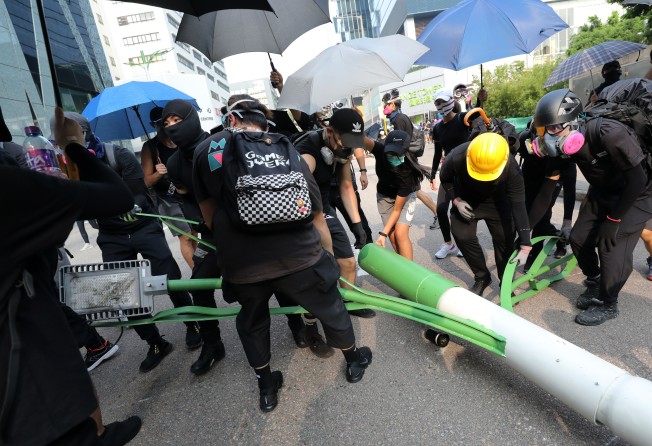‘Smart city’ sceptics must be won over
- Destruction of smart lamp posts by radicals reflects need to fully explain purpose of such installations and that they are not there to spy on public

The protests against the to be withdrawn extradition bill have claimed an unlikely victim – smart lamp posts to collect air quality and traffic flow data in Kowloon Bay. They were damaged and toppled last month by radicals who feared that they were being used to spy on the public.
This is without doubt a setback for Hong Kong as it seeks to become a smart city, but it somehow also underlines the distrust in the government in some quarters, which may hinder innovation and the development of technology.
While vandalism is unacceptable and must be condemned, officials would be wise to better explain the functions of such installations and the safeguards in place.
The extradition bill does not seem to have anything to do with lamp posts. Even though officials have repeatedly denied the installations are equipped with privacy-sensitive technology, such as facial recognition, this does not stop some radicals from damaging them.
The contractors involved were even doxxed, or targeted on the internet, and will only complete the first phase of the project.
The HK$272 million (US$35 million) scheme to install 400 smart lamp posts in four districts is a belated drive by the government to take Hong Kong into a new age.
Important as it is, the project was scaled back earlier with some applications put on hold amid public concern over privacy.
They include monitoring of illegal dumping, detecting traffic speeds and travelling times, as well as assessing road use by different types of vehicles through cameras that record number plates.
An expert committee has been set up to review the privacy protection of such applications, and the adjustments show the government is aware of the sensitivity. But it has probably underestimated the amount of scepticism and resistance as the political crisis deepens.
Secretary for Innovation and Technology Nicholas Yang Wei-hsiung said the project was transparent from the start and branded the vandalism a dark day for innovation and technology in Hong Kong.
With the government still struggling to restore public trust in governance, it must work harder to win over sceptics if we are to catch up with the global development on this front.
Technology experts can also help by educating the public more to differentiate facts from political fears and rumours.